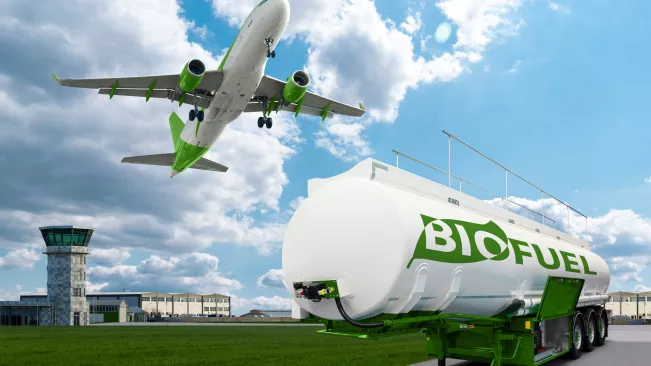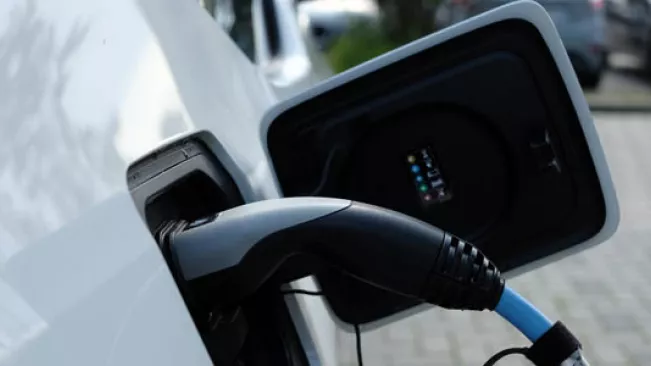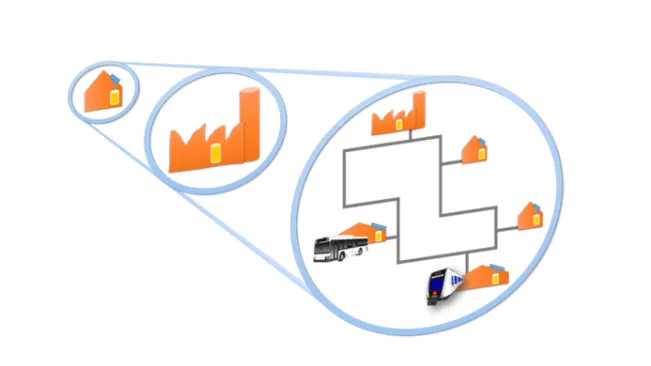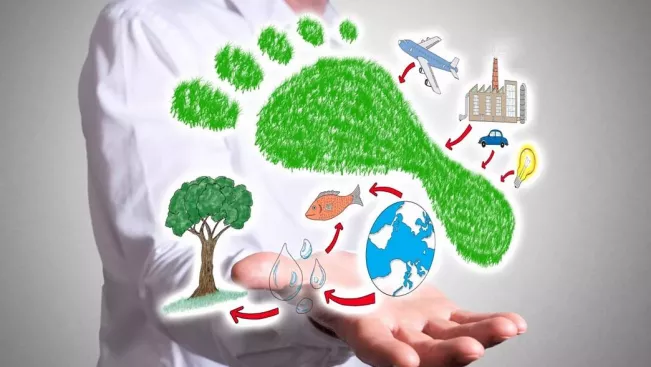International Centre for Sustainable Development (IZNE)
Sustainable mobility
Air traffic
For international air traffic, there is the possibility of developing and using synthetic electricity- and bio-based fuels. It should always be critically questioned whether these fuels actually contribute positively to climate protection. The life cycle analysis method is an important and helpful tool here. IZNE is monitoring current technical developments in this field with regard to their ecological, economic and social sustainability.
One way to make flying more environmentally friendly is to plan climate-optimized flight routes that take carbon dioxide emissions and contrail formation into account. This can massively reduce the climate impact of aircraft, even to the point where the effect can be reversed from a net warming to a net cooling effect. The feasibility of such environmentally optimized flight route planning was demonstrated in a cooperation between the German Aerospace Center (DLR), the airline Lufthansa, the German Meteorological Service (DWD) and German Air Traffic Control (DFS) as part of the Federal Ministry of Education and Research (BMBF) funding programme klimazwei and confirmed by further studies.
Electromobility and sector coupling
For regional and inner-city automobility, the use of electrochemical storage and thus the expansion of electromobility is an important option. Realising this sustainably is accordingly one of the social challenges in the research strategy of the state of NRW and a declared goal of the city of Bonn and the Rhein-Sieg district. The IZNE supports the transformation of the city region towards more sustainable mobility within the framework of joint inter- and transdisciplinary research projects anchored in the region.
Another important building block for the transport turnaround is the use of hydrogen as an energy carrier. Hydrogen as a central component of sector coupling enables efficient integration of the electricity, industrial and transport sectors. H-BRS is a member of the regional hydrogen network HyCologne and actively supports the Rhineland hydrogen region.
Contact

Stefanie Meilinger
Professor for Sustainable Technologies, esp. Energy Efficiency and Renewable Energies, Director of the International Centre for Sustainable Development (IZNE), Department Engineering and Communication (IWK)
Research fields
Location
Sankt Augustin
Room
F 321
Address
Grantham-Allee 20
53757 Sankt Augustin
Telephone
+49 2241 865 718Links
Further links







